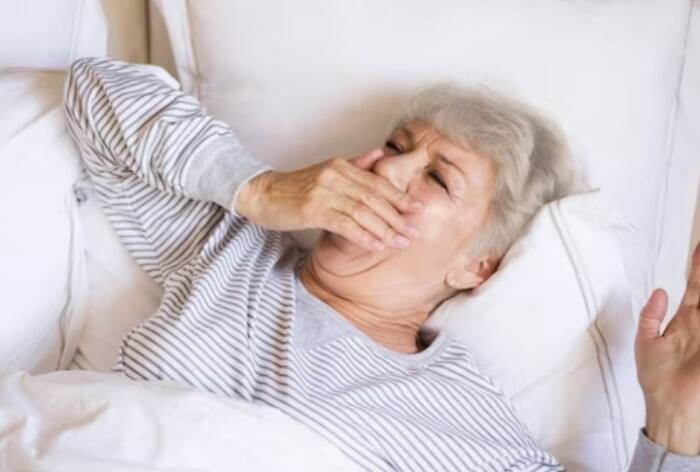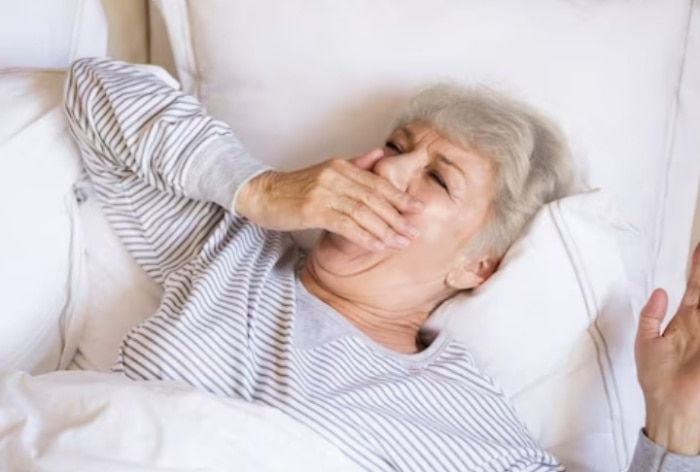Sleep is necessary for your brain to heal, replenish energy, and maintain bodily balance. You become more susceptible to health issues that hasten ageing and make it challenging to age in place safely if you don’t get enough sleep.

Deep Sleep And Ageing: Every stage of life requires different amounts of sleep, depending on the age. Adults between the ages of 18 and 60 normally need seven to eight hours of sleep every night, with newborns and toddlers needing the most. The amount of sleep that this age group needs stays the same. However, as we get older, our sleep habits alter. India.com got in touch with Luke Coutinho an Integrative lifestyle expert to discuss how to maintain cognitive sharpness as you grow old. He said, “We all have grandparents who are in their 90s and 80s, still agile, active, and sharp. Some adults show signs of cognitive decline, whether it is Alzheimer’s, Parkinson’s, dementia, or general memory loss. Some start showing these signs even at an earlier age. Everyone should experience cognitive impairment as they age if that were the case. However, as everyone knows, that is untrue. Why? Genetics? To a certain degree but mostly as a result of a poor lifestyle. One underestimates the impact of lifestyle on ageing.”
Longevity isn’t found in a pill. It comes in daily lifestyle habits – your food, exercise, emotional health, emotions, a sense of community, time spent in nature, and so on. I love speaking to my clients in their 90s and 80s because they are living examples of graceful ageing, not just funded research or hypotheses. Ask them their secret to good health, and they share simple truths. One such truth, among many, is a peaceful sound sleep.
Did you know that chronic sleep loss has a profound connection with brain health, cognition, and ageing, with deep science behind it? While we can consume walnuts, omega-3, and other brain-boosting elements, we also need to ask ourselves – Am I sleeping well enough? Like every organ, even your brain produces certain metabolic wastes. Have you ever wondered when your brain detoxifies itself? The brain is not an easy organ, but it has a beautiful mechanism of cleaning itself when we are in deep sleep.
Just like the lymphatic system, our body’s garbage disposal unit, our brain has an intelligently designed glymphatic system that helps remove metabolic wastes from stress, overthinking, and information overload. Our brain constantly produces these toxins, and an overload can lead to mental fatigue. When we sleep, our brain shrinks, creating space for cerebrospinal fluid to wash out wastes and protein particles like beta-amyloid plaques found in the brain of an Alzheimer’s patient. Excess beta-amyloid plaque formation interrupts neuron communication, leading to memory loss, slurred speech, slow movements, confusion, and more. Toxins breed disease, and the same is true for your brain. Beta-amyloid plaques are closely connected with cognitive conditions like Alzheimer’s, Parkinson’s, and dementia, revealed Luke.
How Sleep Deprivation Can Create Bigger Problems?
- Sleep deprivation also damages the grey and white matter in your brain, crucial for brain health, memory, information processing, communication between neurons, and sensory perception.
- Also, inflammation! Science terms cognitive conditions like Alzheimer’s, Parkinson’s, and dementia as inflammatory conditions. Amongst several factors, chronic lack of sleep can increase inflammation. While we can take curcumin supplements to quell inflammation, it cannot replace sleep.
- Sleep deprivation increases oxidative stress in the body, damaging cells and tissues over time, and leading to age-related health problems, including cognitive decline.
This is the magic that happens when you have a good night’s sleep. It is common for people to begin caring for their cognitive health in their older years, but conditions like Parkinson’s and Alzheimer’s do not appear suddenly. The quality of your lifestyle and sleep now will define the quality of your cognitive health later on; it’s a long but progressive process.
Don’t underestimate the value of sleep, even when it comes at no cost. Encourage your children, families, coworkers, and acquaintances to practice healthy sleep hygiene. It’s important to sleep. Lifestyle is important.

